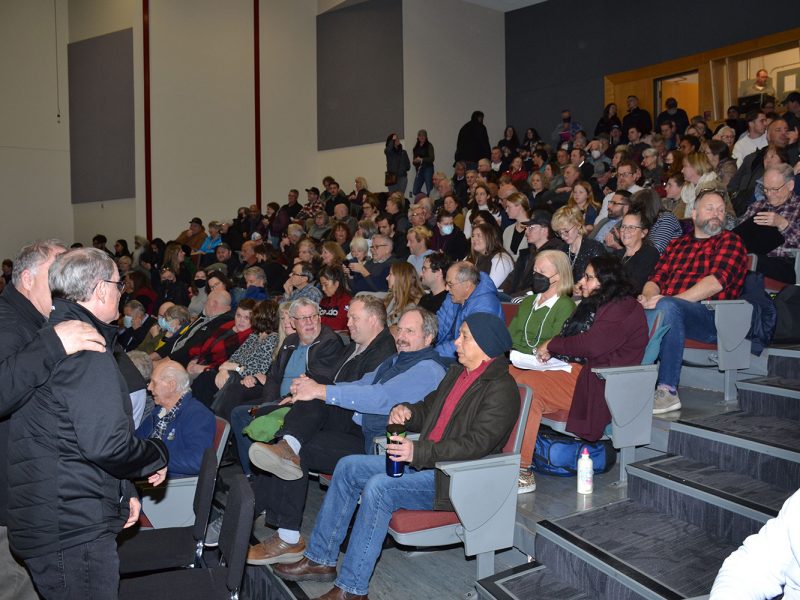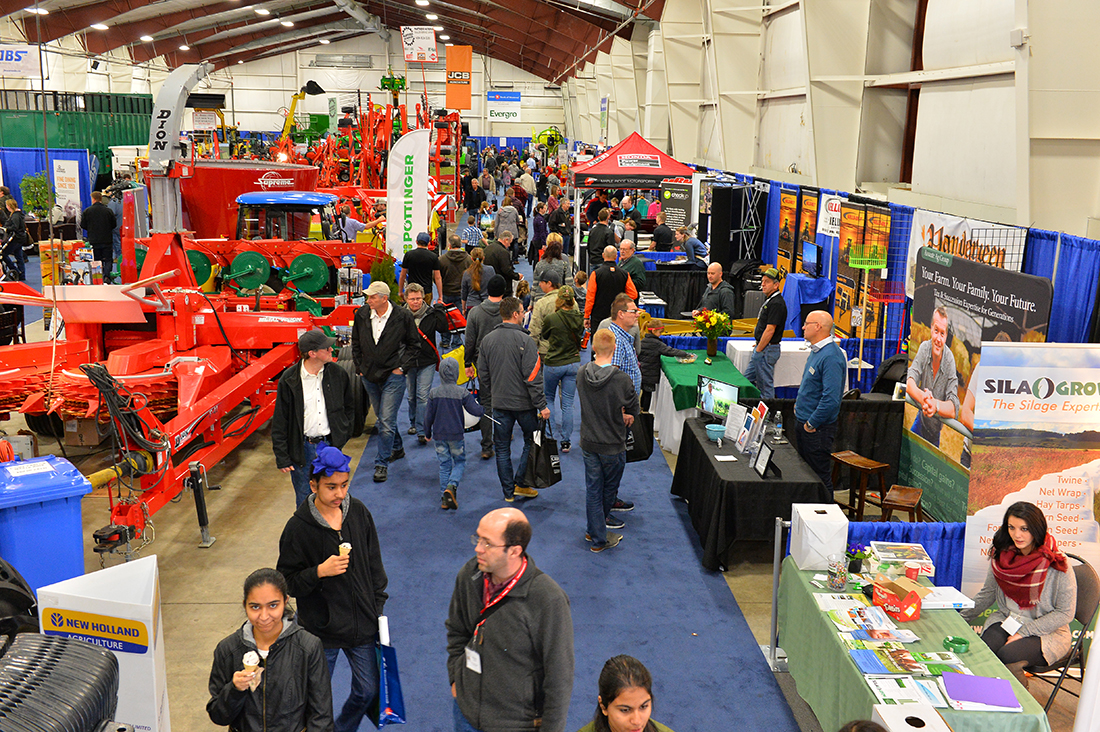A standing-room only crowd of more than 250 people attended a public hearing the Agricultural Land Commission hosted in Langley Monday night regarding a proposal to include 305 acres controlled by the federal government in the Agricultural Land Reserve.
Situated in the Campbell Heights area of Surrey, 220 acres are leased to Heppell’s Potato Corp. and are the first in Canada to be planted with potatoes each year. The five parcels also make up a unique ecosystem that allows for food production nearly 10 months of the year as well as long-term crop research. It is also valuable wildlife habitat, being homes to eagles, owls and hawks.
These attributes of the five parcels that make up the site brought people together to support the ALC’s proposal to include the land in the Agricultural Land Reserve in advance of federal plans to dispose of the property. This could open the lands to industrial development.
“When it comes to food security in BC, [this land] is priceless,” says Murray Driediger, president and CEO of BC Fresh, the first of more than 30 speakers who included politicians, business leaders and citizens. “There is a severe shortage of land that can produce crops reliably.”
The land dries out quickly in the spring, allowing for early access, and unlike lower-lying areas, has never been subject to flooding.
“We’ve never lost a potato or carrot or anything to floods,” says Ron Heppell, who has farmed the land for 60 years.
Surrey councillor Linda Annis notes that Surrey unanimously voted to put the land into the ALR last year following an initial outcry over the potential loss of the land for agriculture in June. Delta South MLA and Opposition agriculture critic Ian Paton says he has taken a number of politicians to see the land to understand its benefits.
More than 76,000 people have signed an online petition asking municipal and provincial governments to protect the land from development, and for the federal government to grant a long-term lease to the Heppells.
Of the 30 speakers at the event, none opposed the inclusion bid. Of 365 written submissions received as of January 23, just two expressed opposition – both due to a lack of broad consultation.
“We believe the process should take into account broader regional interests and the totality of land-use and land utilization across the region,” the Greater Vancouver Board of Trade noted, pointing to the region’s dual shortage of housing and industrial land.
All written submissions will be posted on the ALC site, as well as the public hearing presentations.
There is no timeline for a decision, with ALC chair Jennifer Dyson saying consultations are ongoing.


 PAS kicks off
PAS kicks off